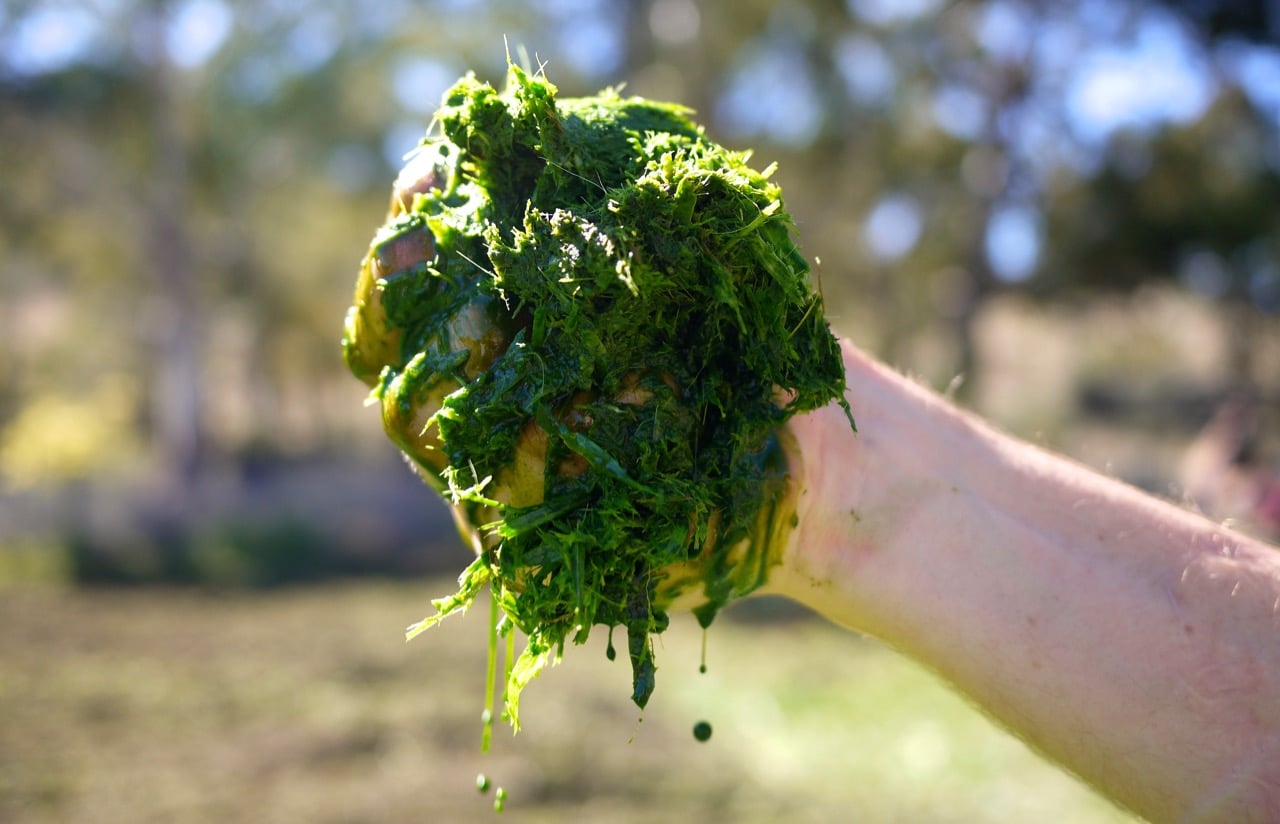Imagine turning your garden into a thriving oasis without relying on chemical fertilizers. Sounds appealing, right?
That’s where green manures come into play. If you’re curious about how you can enrich your soil naturally and sustainably, you’re in the right place. You’ll discover what green manures are and why they could be the secret weapon your garden has been missing.
Whether you’re a seasoned gardener or just starting out, understanding the benefits of green manures could transform the way you cultivate your plants. Let’s delve into this eco-friendly gardening practice and uncover the potential it holds for your soil’s health and productivity. Keep reading to find out how you can give your garden the natural boost it deserves.
Benefits Of Green Manures
Green manures improve soil health by adding nutrients and organic matter. They help control weeds naturally. Farmers use them to enhance crop yields and maintain sustainable farming practices.
Imagine walking through a garden, lush and vibrant, thanks to the magic of green manures. These unsung heroes of agriculture offer a multitude of benefits that can transform your gardening experience. Whether you’re a seasoned gardener or just starting, understanding the perks of green manures can help you cultivate healthier soil and a more bountiful harvest.
Improved Soil Fertility
Green manures boost soil fertility by adding essential nutrients. As they decompose, they release nitrogen, phosphorus, and potassium. These elements are crucial for plant growth. A friend once told me that her garden thrived after using clover as a green manure. She noticed her tomatoes were larger and tastier.
Enhanced Soil Structure
Have you ever struggled with compacted soil? Green manures can help. They improve soil structure by increasing organic matter. This creates a crumbly texture, making it easier for plants to root. Imagine digging effortlessly into your garden, thanks to the natural conditioning power of green manures.
Weed Suppression
Are weeds taking over your garden? Green manures can act as a natural barrier against them. They cover the soil, blocking sunlight and preventing weed growth. I once planted ryegrass in my vegetable patch. It was incredible how fewer weeds popped up, allowing my carrots to flourish without competition.
Pest And Disease Control
Green manures can deter pests and diseases. Some plants release compounds that repel harmful insects. Others break disease cycles by disrupting host environments. Planting mustard in a corner of your garden might reduce nematode problems. Isn’t it fascinating how plants can protect each other?
Environmental Benefits
Using green manures is an eco-friendly choice. They reduce the need for chemical fertilizers. This means less pollution and healthier ecosystems. Imagine contributing to a greener planet while nurturing your garden. It’s a win-win situation.
Have you considered the impact of green manures in your gardening routine? These benefits could be the key to unlocking your garden’s potential.

Types Of Green Manures
Green manures are vital for sustainable agriculture. They enrich the soil, improve fertility, and suppress weeds. Selecting the right type of green manure is crucial for optimal benefits. Different plants offer unique advantages. Let’s explore the various types of green manures.
1. Leguminous Green Manures
Leguminous plants are rich in nitrogen. They include clover, vetch, and alfalfa. These plants fix nitrogen from the atmosphere. This boosts soil fertility effectively.
2. Non-leguminous Green Manures
Non-leguminous plants include rye, oats, and barley. They grow fast and cover the soil. This prevents erosion and suppresses weeds.
3. Winter Green Manures
Winter green manures grow in cold months. Rye and winter wheat are popular choices. They protect soil from harsh winter conditions.
4. Summer Green Manures
Summer green manures thrive in warm weather. Buckwheat and mustard are common examples. They quickly cover soil and improve its texture.
5. Multi-purpose Green Manures
These plants serve multiple purposes. They fix nitrogen, suppress weeds, and improve soil structure. Examples include lupins and cowpeas.
How To Implement Green Manures
Green manures are cover crops grown to enrich soil with nutrients. Farmers plant these crops, then incorporate them into the soil. This process improves soil fertility, reduces erosion, and enhances water retention, creating a healthier environment for future plants.
If you’re looking to enrich your soil naturally, green manures might just be your secret weapon. These are plants grown specifically to improve soil health, providing a natural way to boost nutrients without synthetic fertilizers. Learning how to implement green manures effectively can be an exciting journey into sustainable gardening. You might be surprised at how simple changes can lead to vibrant, productive gardens. So, how can you start using green manures in your garden?
Choosing The Right Green Manure
The first step is selecting the right type of green manure for your soil and climate. Some popular options include clover, vetch, and mustard. Each plant has different benefits; clover, for instance, fixes nitrogen into the soil. Consider what your soil lacks and choose accordingly. Have you noticed your plants struggling with growth? It might be time to try a nitrogen-fixing plant.
Timing Your Planting
Timing is everything when it comes to planting green manures. You want to plant them when your garden beds are empty or in between growing seasons. For instance, after your summer harvest, sow a green manure that will grow over winter. This not only covers the soil but enriches it for the spring. You’ll be amazed at how this simple timing adjustment can rejuvenate your garden.
Planting Techniques
You can plant green manures directly into the soil. Simply broadcast the seeds evenly over the area you want to cover and lightly rake them in. Water them well, especially if rain is scarce. This method is quick and doesn’t require much effort. Have you ever tried direct sowing? It’s a satisfying way to immediately see progress in your garden.
Managing Growth
Once your green manure is growing, you’ll need to manage it properly. Allow the plants to grow until they’re almost flowering, then cut them down. Use a mower or scythe to chop the plants back into the soil. This adds organic matter and releases nutrients. Have you ever noticed how your soil feels after turning in green manure? It becomes rich and loamy, perfect for new plants.
Decomposing For Maximum Benefit
After cutting, let the green manure decompose in the soil. This process takes a few weeks, during which the nutrients are absorbed into the earth. You can cover it with a mulch to speed up decomposition. The waiting period might test your patience, but the resulting fertile soil is worth it. Have you considered this natural waiting game to enrich your garden?
By adopting these practical steps, you can maximize the benefits of green manures and transform your garden into a thriving ecosystem. What’s your next step in embracing green manures?

Impact On Soil Health
Green manures have a significant impact on soil health. They enrich the soil, leading to healthier plants and better yields. By using green manures, you enhance the soil’s structure and nutrient content. This practice benefits both the environment and your garden.
Improving Soil Structure
Green manures improve soil structure by adding organic matter. They increase soil’s water retention, preventing erosion and nutrient loss. This leads to a healthier, more sustainable growing environment.
Enhancing Nutrient Content
Green manures boost nutrient levels in the soil. They fix nitrogen, a crucial nutrient for plant growth. This reduces the need for chemical fertilizers, promoting natural soil fertility.
Boosting Microbial Activity
These manures encourage beneficial microbial activity in the soil. Microbes break down organic matter, releasing nutrients for plant use. This process enhances soil health and plant vitality.
Reducing Soil Compaction
Green manures help loosen compacted soil. Their root systems create air channels, allowing roots to breathe. This improves plant growth and soil aeration.
Suppressing Weeds Naturally
They cover the soil, suppressing weed growth naturally. This reduces the need for chemical herbicides. It creates a more balanced and eco-friendly garden environment.
Conclusion
Green manures enrich soil with nutrients and improve its structure. They help control weeds and reduce soil erosion. These natural fertilizers promote healthier plants and sustainable farming. By adding organic matter, green manures boost soil fertility. They also support beneficial microorganisms in the soil.
Planting green manures is an easy step towards eco-friendly agriculture. Farmers and gardeners can use them to enhance their crops. Choosing green manures means investing in healthier soil and better harvests. Consider using green manures for a more productive and sustainable garden.
It’s a simple and effective way to nurture the earth.



